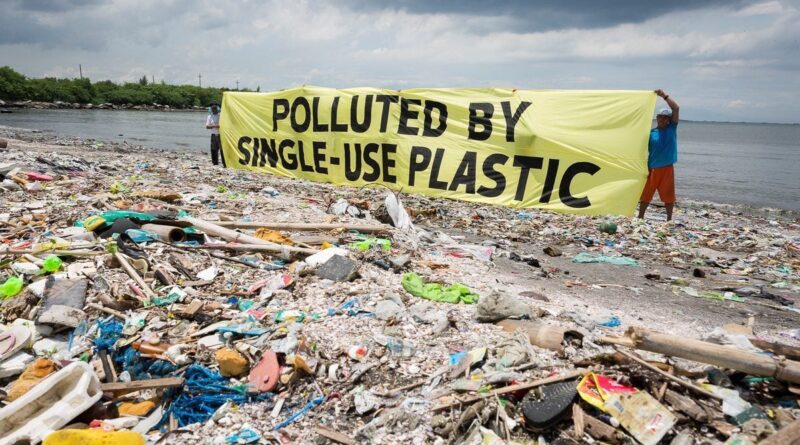Finance firms urge ambitious action on plastic pollution
A group of 160 financial companies on Friday urged governments to agree a treaty to end plastic pollution that would help spur private sector action, ahead of the next round of global talks in Canada.
The fourth meeting of the Intergovernmental Negotiating Committee on Plastic Pollution (INC-4) is due to be held in Ottawa next week to lay the groundwork for an eventual deal before the end of the year.
Curtailing the estimated 400 million metric tons of waste produced every year is a crucial part of efforts to protect biodiversity, with microplastics found everywhere from the mountainous Himalayas to staple foods and even human blood.
To help fix the problem, the finance firms, which include Britain’s biggest investor Legal & General Investment Management and Canadian pension investor CDPQ, called for a policy framework backed up by binding rules.
Among specific steps, the group called for the treaty to set an objective for all public and private finance to be consistent with the goal of eliminating plastic pollution, similar to that in the Paris climate agreement and the Kunming-Montreal global biodiversity framework.
It also called for companies to assess and disclose plastic-related risks and opportunities; clearer plastic-related policies and targets from governments in areas like waste creating and recycling; and for further private investment to be directed to ending plastic pollution.
“A clear transition pathway laid out in the Treaty will help leverage finance at scale for this massive task of ending plastic pollution worldwide,” said Anne-Sophie Castelnau, global head of sustainability at ING, one of the signatories.
Steve Hardman, CEO of Plastic Collective, an NGO which designed the world’s first plastic waste reduction bond alongside Citi and the World Bank, welcomed the support but called for business to provide more financial solutions.
In January, the World Bank issued the $100 million bond to finance plastic-reduction projects in Ghana and Indonesia. Investors will be paid a rate linked to plastic removal credits generated by the projects.




